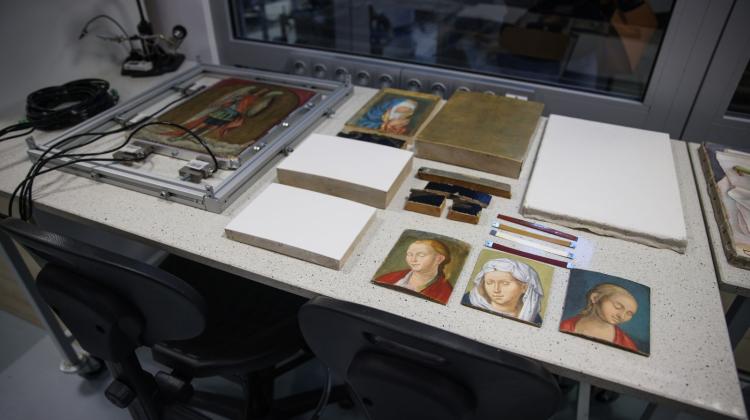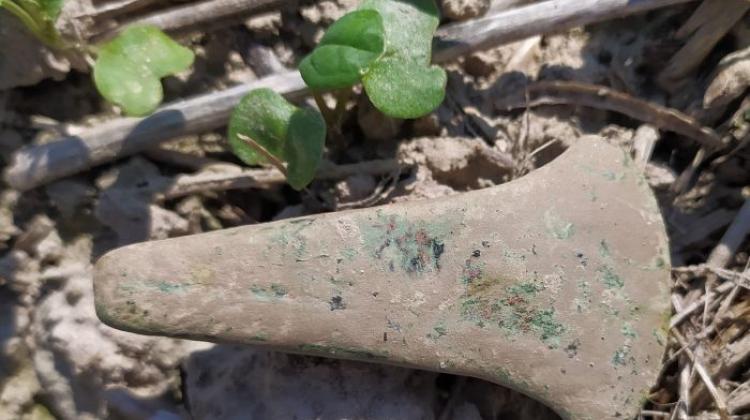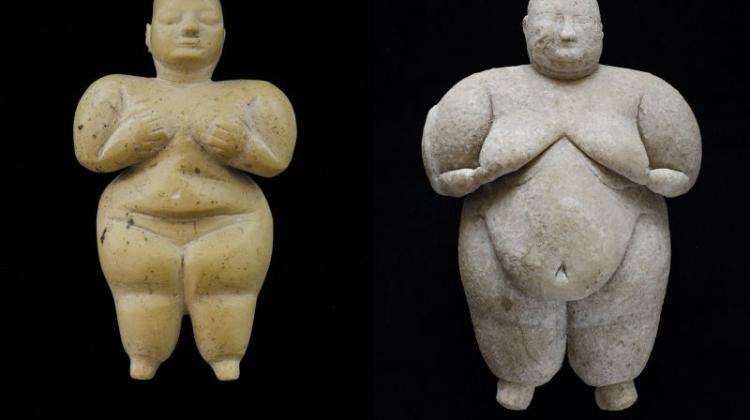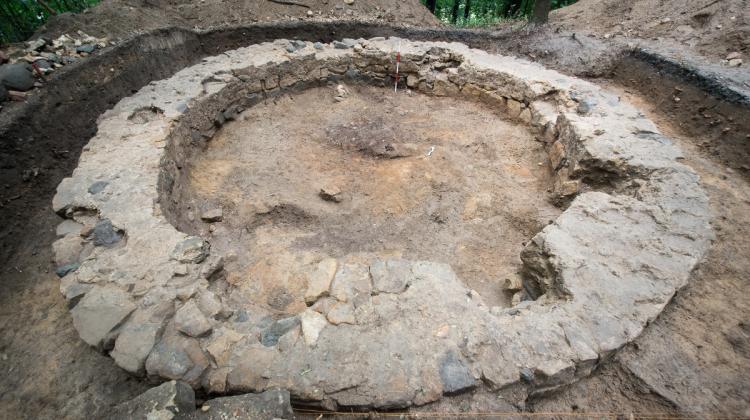Archaeologists dug into mysterious cellars beneath the town square in Muszyna
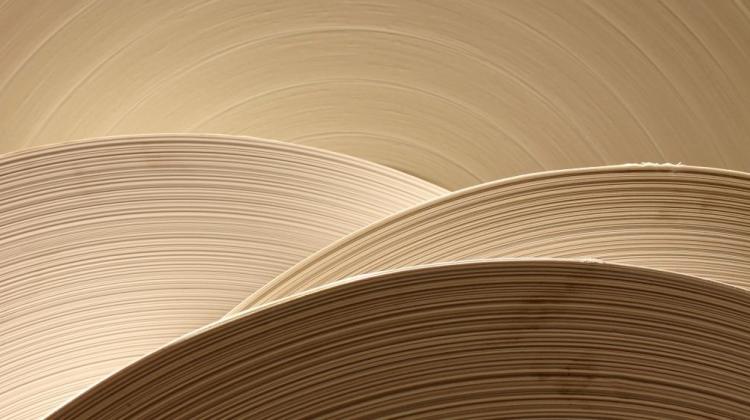 Photo: Fotolia /
Photo: Fotolia /
Archaeologists dug into a mysterious cellars beneath the market in the famous spa town - Muszyna (Lesser). The cellars, like the entire city, belonged to the Bishops of Kraków and were probably used to store wines imported from Hungary.
The researchers are counting on valuable finds, which would enrich the collection of the Regional Museum of the Muszyna State and expand the knowledge of historians. "We should not forget that Muszyna is a city with a medieval heritage. Muszyna town square hides many secrets. It seems that our findings will be significant at least in the region" - told PAP archaeologist Artur Ginter from the company Sekcja Archeo, which conducts the excavations.
Work on the Muszyna town square started four weeks ago. It will help to determine the layout of the old buildings in that part of town. Upon completion of excavation work, Muszyna would like to revitalize the cellars and make them available to the public. At this point it is whether the condition of the underground rooms will allow to expose all the discovered objects. In the coming weeks, archaeologists will try to determine the dimensions of the cellars and determine their range. We already know that they are approx. 3 m high and their total area exceeds 100 square meters.
The cellars, which the archaeologists have already dug out, were under the jurisdiction of the Bishops of Kraków. The first information about them appears in historical sources from the seventeenth century. But - as the archaeologist noted - the cellars may have been built before the seventeenth century.
The traces of the cellars within the town square - the archaeologist explained - were found on several occasions during construction work carried out in the last century. Due to insufficient funds and lack of a coherent concept for the use of the cellars, they were buried again.
Archaeologists who work in Muszyna, discovered the first objects while digging through the historical layers. "There are ceramics, interesting hearth tiles, lead cloth seal and coins from the nineteenth century, from the period when the area was under Austrian rule" - said the archaeologist and added that also the remains of brick buildings could also be located underground - one of them probably served as a prison.
The researchers hope to come across the remains of town hall buildings, of which Muszyna had a few since the Middle Ages. The last town hall was demolished during World War I, and its appearance is partially known from few preserved photographs. Little is known about at least two older town hall buildings. One of them was probably built in the Middle Ages, the second - in the second half of the seventeenth century.
Archaeological work will take at least three months. It is a prelude to planned comprehensive restoration of the square. Whether the further revitalization will begin immediately after the completion of the work of archaeologists, depends on several factors - including the results of research conducted by archaeologists, conservator’s decision, the amount of EU funds, which the city will acquire.
"We want to restore the square to make it even more attractive for tourists resting here and receiving treatment in spas, and so that it can better serve the residents" - told PAP Arkadiusz Cycoń from the Muszyna city council.
The project involves significant changes in traffic organization. There will be new walkways, and the main of them will run diagonally across the square. According to the project, the town square main surface will be lowered in the vicinity of the historic cellars, which will be reared for viewing from the top through glass. There will be cafes, with the main one located at the junction of Kościelna Street and the town square. There will also be new lamps, benches, lounge chairs, trash cans, bike racks. The existing tree stand will remain for the most part.
Representative of the city council announced that traffic in the city centre takes place without interruptions. The places of study are mainly squares with no traffic, only part of the work is conducted in a dedicated parking area on the square.
PAP - Science and Scholarship in Poland
bko/ gma/ mrt/
tr. RL
Przed dodaniem komentarza prosimy o zapoznanie z Regulaminem forum serwisu Nauka w Polsce.


